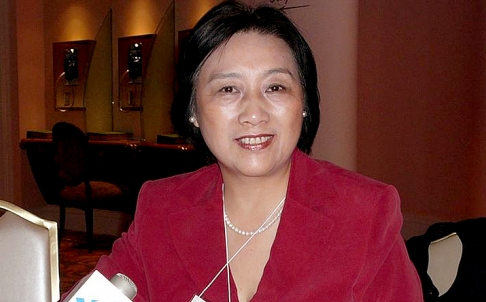The Committee to Protect Journalists’ Bob Dietz reports the disappearance of veteran Chinese journalist Gao Yu ahead of the 25th anniversary of the 1989 June 4th crackdown.
[…] Gao Yu, 70, who is known for speaking frankly and who has been regularly quoted in foreign media, cannot be found, and people are looking for her. Her normally active Twitter feed has been silent since April 23. Deutsche Welle, for which she worked, says it has not been able to contact her. Her publisher Mirrorbooks, for which she writes frequently, said it tried various methods to contact her but did not succeed. Her lawyer, Teng Biao, tweeted on Sunday that she has been missing for four days and four nights.
Gao Yu was first arrested on June 3, 1989, and was held for 450 days. She was sent to prison in 1994 for writing candidly and authoritatively–though not especially critically–about Chinese economic and political affairs for the Mirror Monthly, a Hong Kong magazine known for its generally pro-mainland editorial line, CPJ reported in 1997. In that year she was presented a $25,000 press freedom award in absentia by UNESCO Director General Fernando Mayor. Beijing reacted with furor, calling Gao Yu a criminal and threatening to close UNESCO’s China office or quit the U.N. agency altogether. [Source]
According to South China Morning Post’s Verna Yu, Gao failed to appear at a gathering on Saturday to mark the anniversary of a People’s Daily editorial widely seen as a turning point in the events of 1989.
Bao Tong, a friend of Gao and a former top aide of reformist leader Zhao Ziyang, said he was anxious about her apparent disappearance. “If the government has made her lose her freedoms, it should by law announce the reasons,” he said.
[…] Bao, 82, who was jailed for seven years over the Tiananmen movement, lives mostly under house arrest. In past years, he had been taken away ahead of protest anniversaries. When asked whether he would be similarly treated this year, Bao said: “If they can illegally strip others of their freedoms, they can illegally strip me of my freedoms”.
“I know an old gentleman called Xi Zhongxun, he advocated the protection of different opinions. The protection of different opinions is the manifestation of a country being healthy, confident and full of vitality,” he said, referring to late reformist party elder, Xi Zhongxun, the father of President Xi Jinping. [Source]
To mark the 25th anniversary, CDT is reposting a series of contemporary news articles from 1989, beginning with the death of Hu Yaobang on April 15 and continuing through the tumultuous spring.








